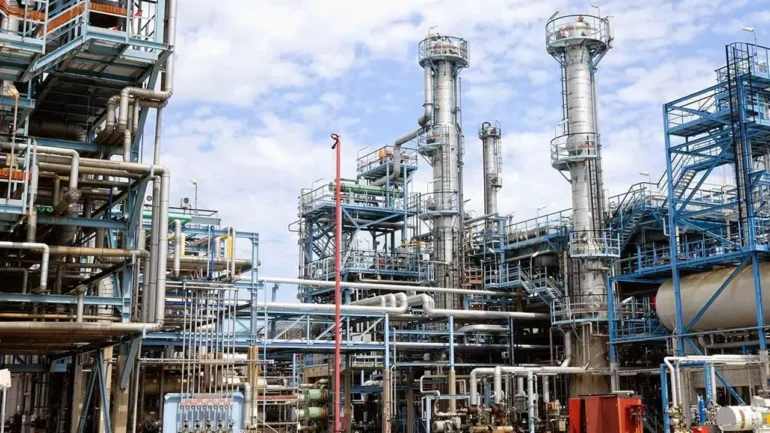The Group Chief Executive Officer of the Nigerian National Petroleum Company Limited (NNPCL), Bayo Ojulari, says the company is considering selling the Port Harcourt, Warri, and Kaduna refineries following years of heavy investment without meaningful results.
Ojulari disclosed this in an interview with Bloomberg on Thursday during the 9th OPEC International Seminar held in Vienna, Austria.
“We’re reviewing all our refinery strategies now. We hope before the end of the year, we’ll be able to conclude that review. That review may lead to us doing things slightly differently,” he said.
When asked if that includes selling the refineries, he responded: “Sale is not out of the question. All the options are on the table, to be frank. But that decision will be based on the outcome of the reviews we’re doing now.”
He noted that outdated infrastructure and underperforming technologies have plagued efforts to revive the state-owned refineries.
“We’ve invested heavily in the refineries over the years and brought in several technologies, but the results have been disappointing.
Some of those technologies haven’t performed as expected. Reviving old refineries that have been idle for years has proven far more complex than anticipated.”
Ojulari’s remarks echo recent comments by Africa’s richest man and Dangote Group CEO, Aliko Dangote, who expressed skepticism about the viability of Nigeria’s state-owned refineries.
Speaking on Thursday while hosting members of the Global CEO Africa group from the Lagos Business School at the Dangote Refinery in Lekki, Dangote questioned whether the facilities would ever function effectively again.
“The government’s refineries have consumed about $18 billion and are still not working,” he said.
Dangote recalled that his company had previously acquired the refineries in 2007, only to return them a few months later due to political pressure after a change in administration. According to him, former President Umaru Yar’Adua was persuaded by refinery executives to reverse the sale, claiming the facilities were sold below value as a “parting gift” by former President Olusegun Obasanjo.
“The refineries we bought were producing only about 22% of PMS (petrol). We had to return them after Yar’Adua came in. And till today, despite spending billions, they still don’t work. I doubt they ever will,” Dangote said.
He likened ongoing turnaround maintenance efforts to trying to modernize a 40-year-old car:
“Even if you change the engine, the body won’t withstand the shock of modern technology. It’s outdated, and no amount of spending will truly revive them.”
Ojulari’s and Dangote’s comments come amid growing public and industry pressure to privatize Nigeria’s refineries.
Despite multiple claims by former NNPC GCEO Mele Kyari that the facilities had resumed operations in late 2024, both the Port Harcourt and Warri refineries were quietly shut down again within months. The 60,000 bpd Port Harcourt plant was closed six months after being declared operational, while Warri was shut one month after reopening.
The Manufacturers Association of Nigeria has described the refineries as a significant burden on the economy, urging the government to sell them off.
Between 2013 and 2017, Nigeria spent $396.33 million on Turnaround Maintenance. In 2021 alone, N100 billion was allocated for refinery rehabilitation, with an estimated N8.33 billion spent monthly. Yet, none of the refineries are currently productive.
Meanwhile, Ojulari confirmed that NNPCL plans to list on the stock exchange by 2028 as part of its transformation under the Petroleum Industry Act (PIA).
“We have a roadmap to be listed by 2028,” he said.
“The PIA has brought stability and structure to Nigeria’s energy sector. It provides a clear framework that guides our operations and allows us to track our progress.”


